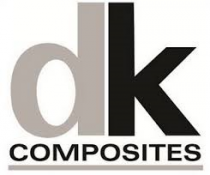New Report From The Visual Lease Data Institute Reveals Urgent Action Needed for Private Companies to Comply With Lease Accounting Standard ASC 842
Visual Lease, the #1 lease optimization software provider, today unveiled the results of an in-depth study of 500 senior finance and accounting professionals analyzing where companies are in their efforts toward achieving compliance with ASC 842. The report reveals that despite 100% of respondents acknowledging the many benefits that lease accounting can bring, 75% are not yet compliant. This report marks the first release under The Visual Lease Data Institute, a collection of market-leading data, trends and insights on lease accounting, management and optimization created and curated by Visual Lease.
This press release features multimedia. View the full release here: https://www.businesswire.com/news/home/20210729005238/en/
The 2021 Lease Accounting Market Analysis: The Road to Readiness for ASC 842 explores the journey, opportunities and barriers that companies face in their efforts to comply with the new accounting standard published by the Financial Accounting Standards Board (FASB), which requires them to track and fully disclose all qualifying leased assets, including commercial real estate and equipment leases. The report was informed by a proprietary survey of 500 senior finance and accounting professionals at private organizations with more than 1,000 employees. It excludes public sector organizations and governmental entities, which have to comply with a similar lease accounting standard.
Key highlights of the report include:
- Real Business Opportunity – All surveyed senior finance and accounting professionals recognize that complying with ASC 842 will offer their companies substantial benefits, including more transparent valuation of the organization (54%), cost savings (54%), easier preparation for audits (53%) and the ability to make strategic lease decisions (50%).
- Need for Urgent Action – Despite the significant business opportunity that comes with lease accounting compliance, of the 75% of surveyed companies who are not yet fully compliant, nearly half (46%) are less than halfway through or have not yet begun the process. Moreover, a shocking one in five respondents admit that achieving full compliance has been a low business priority.
- Pandemic Delays – Many private companies may now be playing catch-up from the impact of Covid-19, with more than two in five respondents (43%) noting that their organization’s process has been delayed due to the global pandemic.
- Race Against the Clock – With the December 2021 deadline for private companies less than five months away, two in five respondents (40%) are only somewhat, not very, or not at all confident about their organization being ready to reach full compliance with ASC 842. One reason why? More than two in five (42%) surveyed admit that the ASC 842 compliance process has taken more time than expected, which puts those who have not started the process at serious risk. This is particularly concerning considering the average anticipated staff hours to gather all the necessary lease information to fully adopt ASC 842 is 1,334 hours, equivalent to more than 33 weeks of full-time labor for a highly skilled worker.
- Companies Can’t Do It Alone – More than one in three (36%) of senior finance and accounting professionals surveyed note that they don’t have the right people, technology and tools in place. High among the things they consider to be essential in the process are implementing new (48%) or upgrading existing (51%) lease management and accounting software.
- Not a One-and-Done Disclosure – Reaching ASC 842 compliance in time for the standard’s effective date is only part of the battle. Ninety-nine percent of respondents expect to face ongoing challenges maintaining compliance after the 2021 deadline. Among the most anticipated challenges include accurately tracking and managing future modifications to leases, adopting new technologies to optimize the process and continuing to train and educate staff.
“We understand just how complex lease accounting is,” said Marc Betesh, founder and CEO of Visual Lease. “For 35 years, we’ve seen firsthand how tight lease portfolio management can amount to millions of dollars in savings and improve business performance. With the deadline for private companies to comply with ASC 842 rapidly approaching, we knew it was the right time to gather our insight, experience and expertise to provide you with the first report under The Visual Lease Data Institute. Our goal is simple – to arm you with the information you need to feel confident about your organization’s lease accounting compliance journey.”
For full study results and helpful guidance towards ASC 842 compliance, download The 2021 Lease Accounting Market Analysis: The Road to Readiness for ASC 842.
About Visual Lease
Visual Lease is the #1 lease optimization software provider for managing, analyzing, streamlining and reporting on lease portfolios. Developed by industry-leading lease professionals and CPAs, it combines GAAP, IFRS and GASB-compliant lease accounting controls with easy, flexible and automated lease management processes. More than 700 of the world’s largest publicly traded, privately-owned and public sector organizations rely on Visual Lease to control their lease portfolios, integrate with their existing business systems and maintain regulatory compliance. Committed to ongoing innovation and unparalleled customer service, Visual Lease helps organizations transform their lease compliance requirements into financial opportunities. For more information, visit visuallease.com.
About The Visual Lease Data Institute
The Visual Lease Data Institute is a collection of market-leading data, trends and insights on lease accounting, management and optimization created and curated by Visual Lease, provider of the #1 lease optimization software. The Institute was founded on 35 years’ experience managing lease data and financials and was created to arm organizations with the knowledge required to achieve and maintain lease accounting compliance and leverage their leases as strategic business assets.
View source version on businesswire.com: https://www.businesswire.com/news/home/20210729005238/en/


